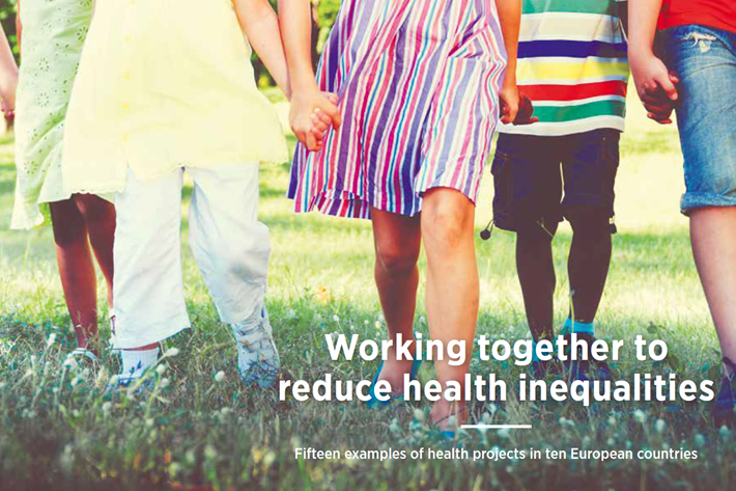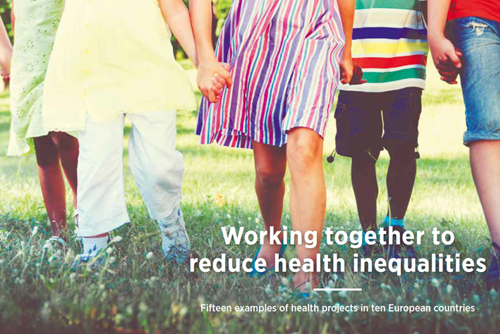Public health programmes 2014–2021 European Public Health Challenges
Article
|Updated
Improved prevention and reduced inequalities in health in Europe are the aims of the public health programmes financed through the EEA and Norway Grants.
European Public Health Challenges is the collective term used for these programmes. They are categorised as area no 6 under the main sector Social Inclusion, Youth Employment and Poverty Reduction. There are eight areas of support under European Public Health Challenges:
Areas of support – Basis for collaboration
Areas of cooperation can for example include:
- Prevention of non-communicable diseases
- Prevention and control of communicable diseases in accordance with the international health regulations, including Tuberculosis (TB) and HIV/AIDS
- Health systems development, including information and surveillance systems
- Universal access to health care
- Reduction of social inequalities in health and the burden of diseases
- Mental health, including mental disorders associated with alcohol and drug abuse
- Strengthening systems for primary health care services
- Healthy and active ageing
Programme agreements with each country
Programme agreements clarify the areas that each country prioritises within the health programme. The Norwegian Institute of Public Health has entered into partnership as a partner in the public health programmes with Estonia, Lithuania, the Czech Republic and Romania. In Romania, the institute is programme partner together with the Norwegian Directorate of Health. In addition, the Norwegian Directorate of Health is partner for Poland.
The beneficiary countries have some differences in health challenges, but a common feature of their programmes is that mental health and well-being for children and young people is a focus area.
Estonia
Budget: 4,5 mill. €.
The programme builds on a recently implemented national municipal reform. Particular emphasis is placed on minorities.
Lithuania
Budget: 15,0 mill. €.
Suicide is the third leading cause of premature death in Lithuania. Mental disorders and substance abuse count for a third of the health loss in the country. Therefore, the main focus in the programme is local-based prevention to reduce health inequalities for children and adolescents at risk plus security and well-being for children and young people.
Romania
Budget: 40,0 mill.€.
The authorities want to improve the situation for vulnerable groups and reduce social inequality in health by investing more in prevention and primary health care. The hospitals will prioritise outpatient clinics and regional emergency services.
The Czech Republic
Budget: 14,0 mill. €.
The country's national strategy, Health 2020, provides guidelines for the main focus of the EEA programme: mental health and well-being for children and adolescents; disease prevention including antibiotic resistance; strengthen the role of patient organisations; strengthen cooperation between the beneficiary and donor country units participating in the programme.
Calls for project proposals
Only organisations and businesses in the beneficiary EU member countries can submit an application for project funding.
Norwegian companies, researchers, municipalities, social partners and non-governmental organisations may be invited to enter into cooperation with partners in the beneficiary countries.
Project collaboration and bilateral activities is advertised under each programme. These announcements will be posted on each country’s page on www.eeagrants.org:

